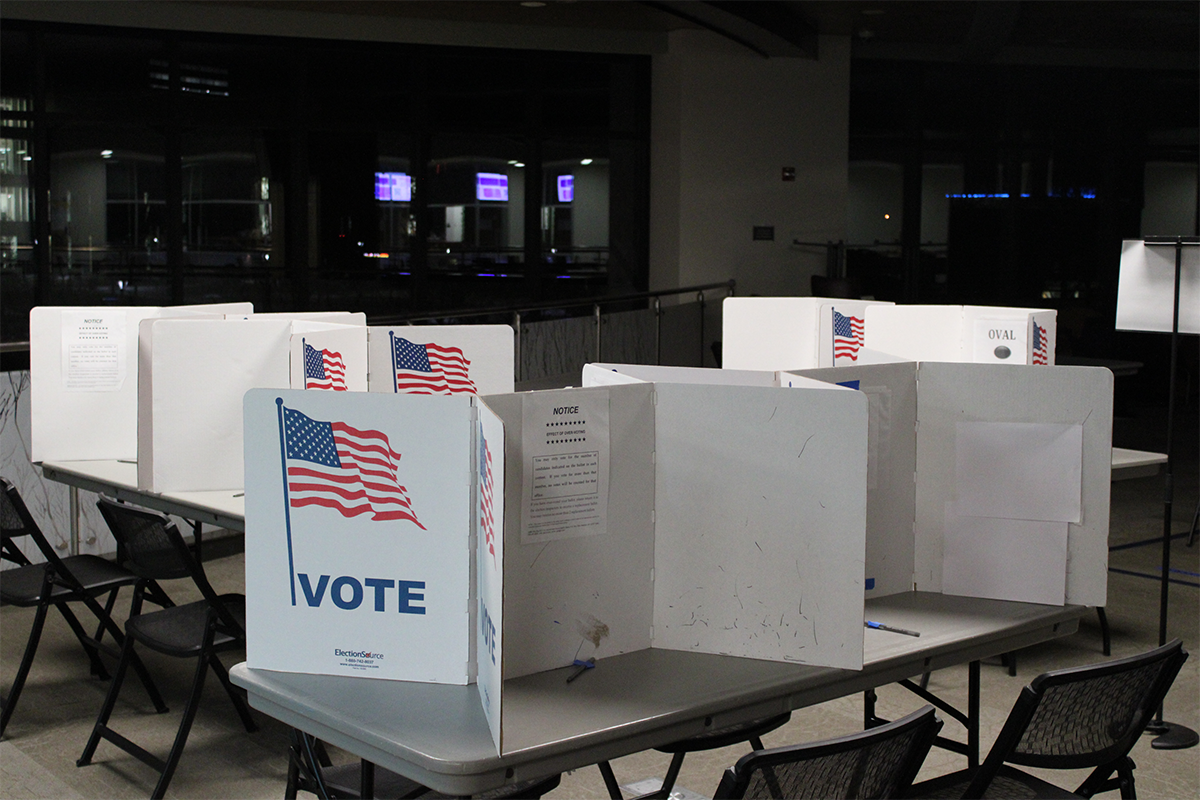 Aaron Vehling
Aaron VehlingLiberal. Conservative. Moderate. Independent. Democrat. Republican.
These terms are a part of nearly every campaign, and they have found their way into the Wisconsin Supreme Court election, which will be held April 1.
The candidates running for an open position on Wisconsin’s Supreme Court – Barron County Judge Ed Brunner and State Appellate Judge Pat Roggensack – spent much of their on-campus debate Monday evening discussing the place personal and political biases should have in a justice’s rulings.
Throughout the debate, which was held in the Council Fire Room in Davies Center, Roggensack said she considers herself an independent, despite a reputation as a conservative judge.
“I’m an independent, because I know what that means,” she said.
Brunner said sometimes characterizations of candidates can be misleading. He cited talk show host Charlie Sykes as making reference to him one day as a moderate and the next as an extreme liberal.
“I tell people I’ve never moved so far to the left in one day in my life,” Brunner joked.
He added that while he may bring personal and political beliefs to the bench, he has made no secret about what those biases may be.
“It takes courage to speak your mind,” he said. “Many people don’t like my stand, and I’m sure they will vote the other way.”
Roggensack again said that because she wants to be an independent judge, she should not make broad belief statements.
“I do not take personal positions on substantive issues,” she said.
Roggensack said interested parties, however, could look at her previous decisions to get a sense for how she may decide cases as a state Supreme Court justice.
“All you have to do is look on the Internet,” she said. “Anybody can find me.”
Voting citizens have a right to know where candidates stand on various issues, Brunner said. In a democracy it is wrong to leave decision-making a mystery, he said.
“You don’t have to search through cases to find (my) information (about my stand on the issues),” he said.
In addition to their disagreement on potential biases, the candidates also questioned each other’s involvement with political parties and interest groups.
Roggensack questioned whether Brunner’s openness on issues is an attempt to get votes from supporters of the interest groups his opinions seem to support.
Brunner, in turn, questioned Roggensack’s involvement with the Republican Party. He made note of Roggensack attending a recent Republican Party function as a master of ceremony.
Roggensack defended her involvement by saying that she had seen Brunner at a recent Democratic Party function. She went on to say that she meets with many people, regardless of party or other affiliation.
“Wherever people are gathered, I go,” she said. “Justices should meet with as many people as possible during an election.”
In any case, Brunner said attending an event is different than being a master of ceremonies at one.
“If you’re an independent, you’re an independent,” he said. “If you’re a party, you’re a party.”
Being an appellate judge, Roggensack said she brings a different perspective that is not represented on the current state Supreme Court. She said she has written many court opinions on cases the appellate court has seen during her time.
Brunner said he is qualified for a position on the Supreme Court, because he has seen a wide variety of cases in his years as a Barron County Circuit Court judge. These cases have allowed him to affect people’s lives, he said.
“All of these cases and all of this interaction with people in the community affects the lives of real people,” he said. “The decisions that the Supreme Court will make will affect real judges and real people in the real world.”






